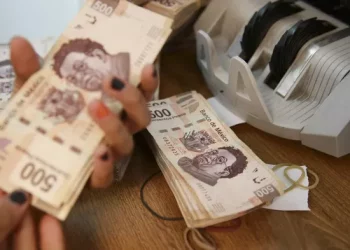In the interconnected global economy, understanding currency exchange rates is paramount for individuals, businesses, and investors alike. In this article, we delve into the specifics of converting 50 US dollars into British pounds. We’ll explore the basics of exchange rates, the current exchange rate, practical ways to use these rates, and the factors influencing fluctuations. Furthermore, we’ll analyze how these changes impact individuals on a practical level.
Exchange rate basics:
1. Define exchange rate:
Exchange rate represents the value of one currency relative to another currency. They constantly fluctuate based on various economic factors and play a pivotal role in international finance.
2.Exchange rate type:
There are different types of exchange rates, including spot rates (current exchange rates), forward rates (future exchange rates agreed upon today), and nominal and real exchange rates that take inflation into account.
Current exchange rate:
1. Real-time exchange rate tools:
To find the current exchange rate of 50 US dollars to British pounds, individuals can use online tools such as currency converters, financial news websites, or consult a bank.
2. As of November 17, 2023:
At the time of writing, the exchange rate of 1 USD to GBP is 0.8077. Therefore, $50 is equivalent to £40.40.
How to use exchange rates?
1. Exchange currency:
Exchange rates are used to convert the value of one currency to another. To convert 50 USD to British Pounds, multiply the USD amount by the exchange rate.
2. Understand the buying and selling prices:
Exchange rates are usually quoted in terms of bid and ask prices. The bid price is what buyers are willing to pay, while the ask price is what sellers demand. The difference between the two is called the spread.
3. Cost considerations:
When exchanging currency, any fees associated with the exchange must be taken into account. Banks and currency exchange services may charge fees or offer less favorable exchange rates.
Factors affecting exchange rate changes:
1. Economic indicators:
Economic indicators such as inflation, interest rates, and GDP growth all affect exchange rates. Countries with lower inflation and higher interest rates are likely to experience currency strengthening.
2. Political stability:
A country’s political stability affects investor confidence and therefore the strength of its currency. An uncertain political environment may lead to currency depreciation.
3. Trade balance:
The trade balance represents the difference between a country’s exports and imports, affecting its currency. A trade surplus (exporting more than importing) tends to make a currency appreciate.
The actual impact of exchange rate changes on individuals:
1. Travel and Tourism:
Currency fluctuations can affect travel expenses. Individuals planning a trip to a country with a depreciating currency may find that their money goes out more, while the opposite is true for a country with an appreciating currency.
2. International transactions:
Businesses and individuals involved in international trade must deal with the effects of exchange rate changes. Importers and exporters may experience changes in the cost of goods and services.
Business considerations:
1. Import and export transactions: Enterprises engaged in international trade must closely monitor exchange rates, because exchange rates directly affect import costs and export revenue.
2. Currency Hedging: To reduce the risks associated with currency fluctuations, businesses can employ hedging strategies to lock in favorable exchange rates for future transactions.
3. Global expansion: Companies considering expansion into the United States or the United Kingdom need to consider exchange rates when developing business strategies and financial forecasts.
In conclusion:
In summary, understanding the conversion of $50 to British Pounds requires considering current exchange rates, using appropriate conversion tools, and acknowledging the various factors that influence exchange rate changes. As individuals engage in global transactions, understanding exchange rates becomes a valuable skill for managing financial decisions. Stay up to date on economic indicators, political stability and trade balances to effectively navigate the dynamic world of currency exchange.
Related Topics:
Will the Pound Get Stronger? A Comprehensive Analysis
Why GBP is Falling? Exploring the Factors Behind the Decline
The Faces Adorning the Pound Note: A Historical & Cultural Journey



























